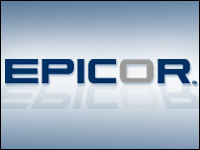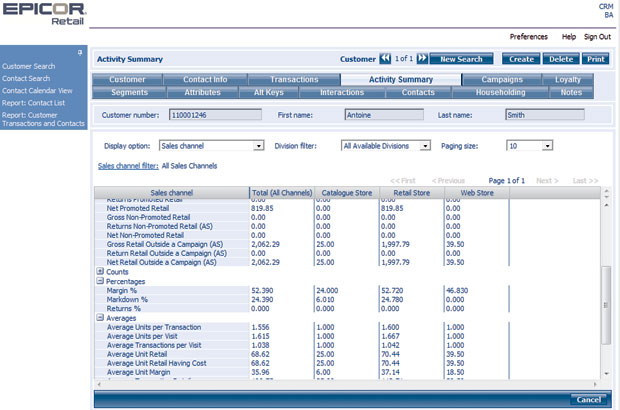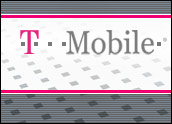
Epicor Software has announced the general availability of Epicor Retail CRM 7.0. The updated platform reflects a complete shift to .Net and SQL reporting services and includes a number of new features in analytics, reporting and security.

As a whole, 7.0 “gives a more granular view to the retailer about a customer’s behavior and how to net out insights on how to approach the customer going forward,” said Sarah Barron, Epicor Retail product manager for CRM.
New Look, Interface, Navigation
The shift to .Net and SQL reporting services has given the application a new look and feel, Barron told CRM Buyer.
“Previously, we used a mix of .Net and Power Builder. By moving everything to .Net, the user will find an experience similar to using Microsoft Office,” she said.
As a result, the enhanced application has become easier and more intuitive to navigate, she added.
More Fields, More Choices
Other changes give retailers more options to categorize their customers. For instance, there is now support for multiple divisions — i.e., store numbers — within a single CRM database.
“It is up to the retailers to decide how to parse that,” Barron said. “It could be by brand, or they could group by geography.”
Epicor Retail CRM 7.0 also has the ability to merge all of the databases to give the retailer a 360-degree look at a customer record, she continued. The revamp of the activity summary fields makes this feature particularly valuable.
The activity summary essentially rolls up all the information about the customers’ purchases. New fields have been added to this section including amount fields for gross retail sales, net retail sales, costs, margins and marked-down dollars.
New fields also were created for the accounts section, giving retailers room to include how many units a customer purchased, how many were returned, how many were purchased after a promotion, and so on.
“Now all of this is available to report and query on,” said Barron. “It enriches the information the retailer has about its customers.”
For example, a retailer might want to flag customers who return an inordinately high number of items, she suggested.
Or a retailer might want to segment customers who are heavy shoppers of marked-down items, Barron pointed out. These customers could be grouped for special marketing. Conversely, customers who buy high-ticket items when they first arrive at the stores would receive different types of campaigns and offers.
Automating Loyalty
Epicor also enhanced functionality that supports loyalty offerings, Barron said. “We now support unlimited distinct loyalty plans in a single database. By supporting multiple loyalty programs, the retailer is able to have a clearer picture of the customer.”
Automation was also added to the mix.
“Prior to 7.0, it would be a manual process to move people up and down a hierarchy. Now the retailer can just set rules for what a customer has to do to achieve, for example, a ‘gold’ level. Once the customer qualifies, they are automatically upgraded,” Barron noted.
“This frees up time for the retailer to focus on analysis and segmentation,” she said.
Security, Translation
Other changes touched upon security enhancements and globalization of the platform.
User and administrative controls have been enhanced regarding the former. For the latter, Epicor has added features that allow uses to export the labels out of the system to be translated and then import the new fields back in.
Meanwhile, the company is working on an out-of-the-box translated version in Spanish. After it ships, Barron said, French will follow.






















































